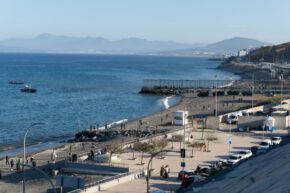
Florian Trauner
Professor of Political Science
Brussels Interdisciplinary Research Centre on Migration and Minorities, Vrije Universiteit Brussel (VUB-BIRMM)

Omar N. Cham
PhD Researcher
Brussels Interdisciplinary Research Centre on Migration and Minorities, Vrije Universiteit Brussel (VUB-BIRMM)

Rosangela Caleprico
Research Assistant
Centre for Migration, Diversity and Justice, Vrije Universiteit Brussel (VUB)
The control of irregular migration has moved higher up the EU’s agenda after the 2015-2016 “refugee crisis” in Europe and in view of a continuing use of the Mediterranean route by migrants, regardless of the high risks. Information campaigns have become an important tool to control migration by the EU and member states since their inception in the 1990s and the European Commission has dedicated over €23 million on information campaigns after the 2015 migration crisis.
Information campaigns have tended to frame irregular migration in a negative and dangerous manner. Potential migrants should be discouraged from leaving in an undocumented manner. Smugglers have been portrayed in information campaigns as criminals who puts migrants’ lives at risk. However, academic research has highlighted that the negative framing of smugglers may not be in line with how migrants view them.
The perceived lack of effectiveness of information campaigns brings up a few questions that this Working Paper seeks to address: to what extent do we have substantiated knowledge about the influence of these campaigns on potential migrants? How are migration narratives created and/or become dominant in countries of migrants’ origin? And how do migrants make up their own decisions regarding migration and how important are information campaigns in this process?
Through a systematic review of the literature of information campaigns targeting migrants, this Working Paper shows the different forms of information campaigns that exist, their set-up and frameworks, the actors involved, and the different types of narratives that they propose.







